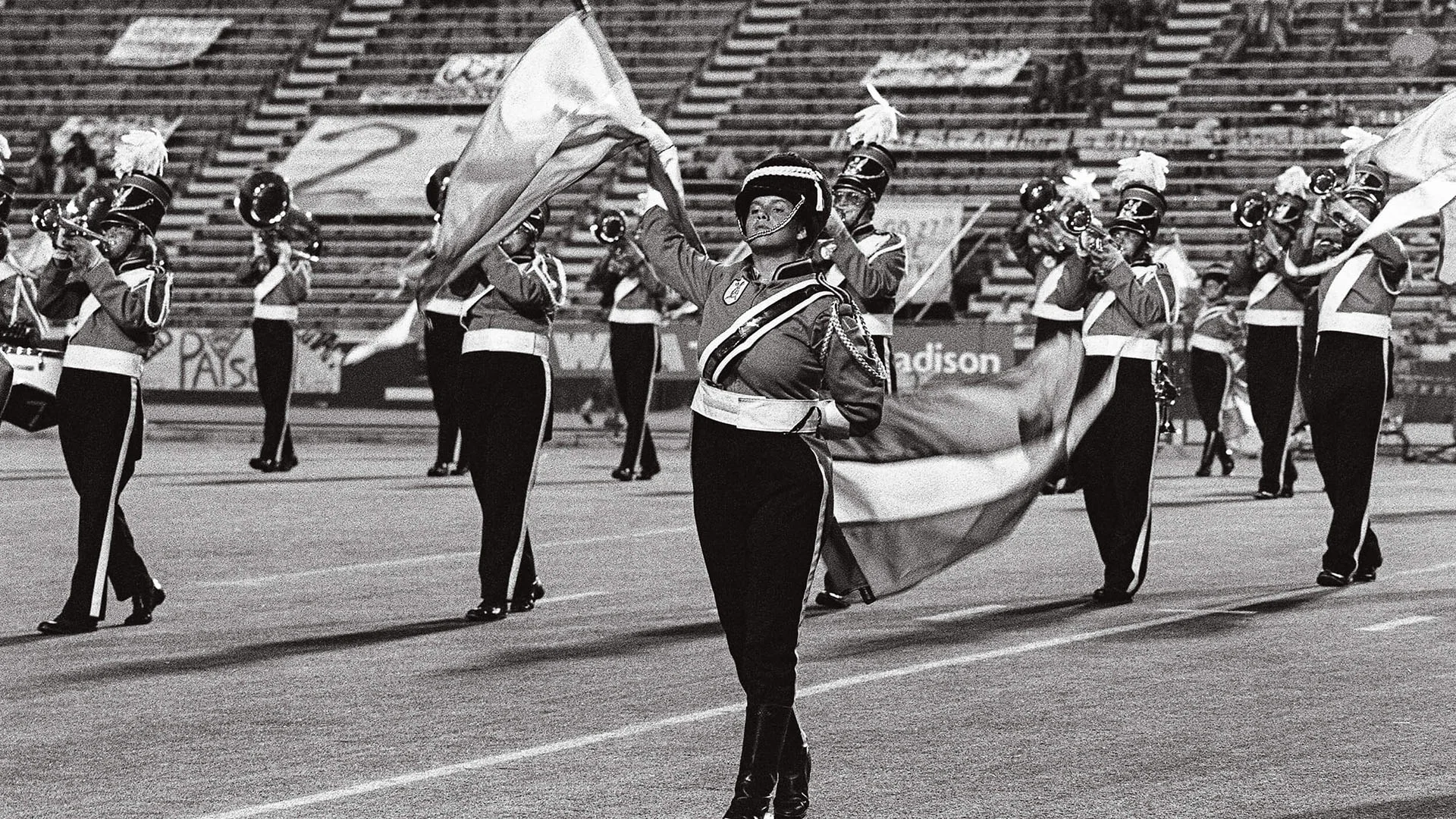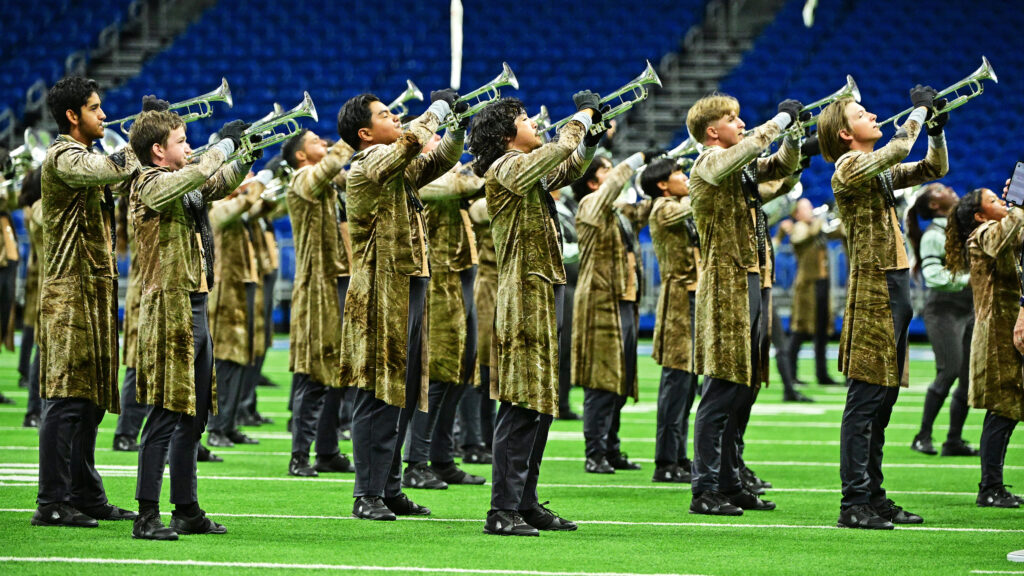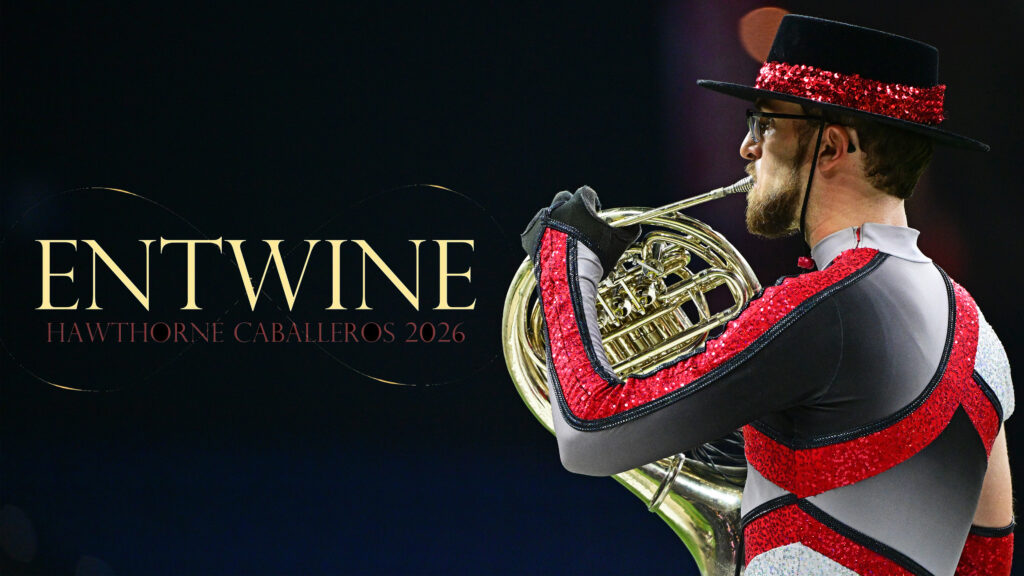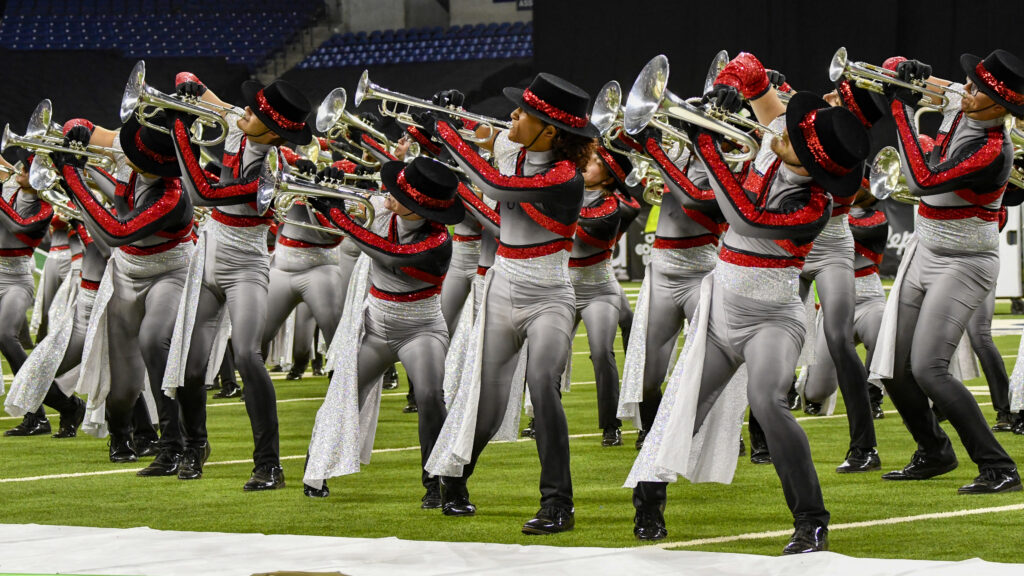For only the second time in Drum Corps International history, all corps at the 1980 World Championship Finals in Birmingham, Alabama had been previous finalists.
The contest witnessed the smallest spread ever between first and fourth place, just eight tenths of a point. With a different judging system in place than is used today, Blue Devils’ winning score of 90.60 would only have been good enough for seventh place in 2012, and Cavaliers’ 77.40—the lowest ninth place score ever—would have only been good enough for 20th.
1980 was the year when the east could easily have won its first DCI title, and days before the Birmingham shows, the second-place 27th Lancers beat the Blue Devils at the DCI East Prelims and Finals. The corps entered the season basking in the glow of its worldwide television exposure at the opening and closing ceremonies of the 1980 Winter Olympics in Lake Placid.
Another notable placement was the Blue Stars dropping out of the Top 12 by one position, not to be seen again in the Saturday evening show until 2008 and leaving Santa Clara Vanguard as the only corps to be in every Finals. It’s a distinction Vanguard has maintained throughout DCI’s four-decade history.

1980’s 12th-place finish by Guardsmen would be the last year drum corps fans saw the corps in the Finals competition. Just two years later, the four-time finalist would drop another 20 places.
The Illinois corps’ production opened with Erich Korngold’s “Sea Hawk,” the theme music for the 1940 swashbuckling film starring Errol Flynn. From the beginning, fans generally commented on two things: The color guard—continually one of the top units in winter guard competition—was one of the hardest working units on the field. However, this was somewhat muted by the sometimes-criticized visual program, which often moved through somewhat static drill forms relatively slowly.
The corps’ concert standstill production featured John LaBarbara’s “Tiger of San Pedro,” a hot dynamo written for jazz trombonist Bill Watrous and his Manhattan Wildlife Refuge Big Band. The title track of his 1975 album, the name referenced a character in one of the Sherlock Holmes short stories written by Arthur Conan Doyle. The piece was brought back from Guardsmen’s successful seventh-place season in 1979 and, like the rest of the brass compositions, was arranged by DCI Hall of Fame member Tim Salzman before he went on to work with Santa Clara Vanguard and The Cavaliers.

Guardsmen turned to “Xylophenia” for their percussion feature. The piece is a delightful work written by Joseph Green, older brother of famed recording xylophonist George Hamilton Green. It was identified in pre-season promotional materials as “Just Ducky,” due to the duck whistle sounds that were added in the “Nexus Ragtime Concert” recording by the famed Canadian percussion ensemble.
A visual highlight featured the color guard members sequentially tossing their rifles and flags before catching the equipment while falling backward to the ground. That was followed by an eight-yard spinning rifle toss over the heads of a straight line of spinning flags.
“The Wasps” by Ralph Vaughan Williams was an overture composed in 1909 for a college production of a play by Aristophanes, an ancient Greek playwright. It started with percussive mallet glisses and brass effects re-creating the sounds of wasps, the only literal part in Vaughan Williams’ score.
Guardsmen closed out the show with “Greensleeves,” a piece introduced by the corps the year before. It is a traditional English folk song from the 16th Century that became commonly known in the late 1800s as the Christmas hymn, “What Child Is This?” It was a mega musical hit when the corps performed it in 1979 and instantly became the one piece fans have come to most associate with the corps.
1980 Overview

Michael Boo was a member of the Cavaliers from 1975-1977. He wrote about the drum corps activity for more than 35 years while serving as a staff writer for various Drum Corps International projects. During his lifetime Boo wrote for numerous other publications including an honors-winning book on the history of figure skating. He also was an accomplished composer. Boo passed away in 2020 and was inducted into the DCI Hall of Fame posthumously in 2021.





